Filmmaking: Steve Balderson on the Importance of Film Festivals & Casting Actors who are Team Players
 Thursday, April 7, 2011 at 1:11PM
Thursday, April 7, 2011 at 1:11PM 'F' is for "Filmmaking" in this addition to the A to Z challenge, which brings me to an interview with a prolific filmmaker who gets things done way outside of Hollywood.
Steve Balderson is one of the most active independent filmmakers in the country right now. He's been so busy making movies including "Stuck," "Watch Out" based on a book by Joseph Suglia and the upcoming "Casserole Club" that I wonder whether or not he does anything else....you know, like sleep, eat, watch television or go to the movies. Fortunately, I got a chance to not only find out the answers to these things but also learn about important aspects of the filmmaking process....some of which remain in constant debate within the filmmaking community.....all in this one interview.
Madlab Post: One of the “Wamego” documentaries featured a conversation held during your “Firecracker” years, in which you shared the producer's disagreement on referring to movies shot on DV as “Film,” yet you seemed to have embraced DV production in your later work. Do you still view “film” as an inaccurate classification for DV movies or has your position on the matter changed since then? Why or why not?
Steve Balderson: My position has totally changed. We made “Firecracker” in 2003, and the first “Wamego” documentary was filmed starting in 2002. At that time, HD cameras were simply not as developed, and the technology just wasn’t capable of treating the image the same way celluloid did. It was, I think, about 2005/2006, when the new HD cameras started coming out that really changed the whole field. We spent almost a year researching the best HD cameras, how each one differed in image control, audio capturing, ease of use, etc. Now, I say that there’s no reason to photograph on celluloid anymore. It’s archaic.
MP: How long did it take you to find all of the DV settings to look like film and is there a similar resource where other filmmakers can learn about doing the same or are the solutions to getting a film look the result of mere trial and error?
SB: I’m sure there are hundreds of resources out there, but for us it was just trial and error, and also it comes down to personal needs. I love to explore colors and certain saturations that are really hard to capture on HD. Most cameras make their reds look too orange, or too brown. When I found how to get my favorite red, that’s the direction we went.
MP: Since “Watch Out” was shot on DV, were there any special actions taken during post-production to help you replicate a film-like appearance for this movie? Also, was there a lot of color grading involved in this process?
SB: Yes—all of the above. But you know, we did those very same things when we were doing post on “Pep Squad” and “Firecracker,” so really, the process was exactly the same. And the end results are the same. It is much more cost effective to shoot on HD. For me at least. It gives me more control as a director and DP.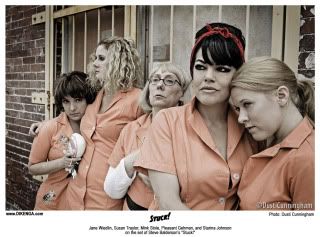
MP: Most of the scenes in “Stuck” take place in one location. Is there some truth to the notion that there are less challenges for shooting a movie in one location?
SB: It is true that from a cost-savings perspective, shooting in one location is a great idea. But it is incredibly challenging, cinematically speaking. One can only shoot a wide shot from that corner of the room so many times before the audience stops feeling any movement.
It’s easier (cinematically) to shoot in a variety of locations, with atmosphere and the background constantly changing, because there are so many extra things to look at. But when you’re in one room, and you’ve got nothing else to look at, the story has to be really compelling, and the camera has to behave in a certain way, in order for it to work. It’s really challenging.
Techincally, though, it’s great because you can lock down the sound, so it records audio perfectly, etc. However, in “Stuck!” this was not the case. Hahaha. We were shooting the jail set on the second floor of the building in Macon, Georgia, with no Air Conditioning, and it was disgustingly hot. But we pulled through.
MP: You seem to have found a magic bullet in getting stand-out performances from actors who are working for free. How are you still able to secure both unknown actors and name-actors with this method of production, especially in our SAG-drenched and AFTRA-dominated era?
SB: Well, it’s tricky… When I go about casting, I do it totally differently than most productions. I try and select people who not only are right for the roles, but who get along together. Sometimes the end results are across the board: Oscar nominees, Golden Globe winners, Grammy winners, stage actors, regional theatre people, kids off the street. As long as each person brings an ingredient to the dish, it’ll be a great recipe. Of course, I didn’t start realizing how important casting was until after I’d made “Stuck!”
MP: The ongoing debate among filmmakers regarding the necessity/advantages of film festivals, or lack thereof seems to never end. Are film festivals beneficial to all filmmakers or does it depend on the project?
SB: I think it depends on the project. For instance, I have a project in development that is a Christmas caper comedy. Something you’d have seen on TV in the 80s. Only, more cinematic and more R-rated (of course, haha). But I imagine when it’s time for me to release that movie, very few festivals will screen it because it’s so commercial. But, who knows, I might be surprised.
I do think that festivals are important because it gets the movie out there and seen by more people than it would sitting on the storage shelf. I can’t afford to rent a theatre in NYC for even a night (unless I’m charging $35 a ticket). So if a film festival there shows one of my films, I don’t spend a dime, and it’s a great experience!
MP: What can filmmakers who are attending film festivals do to make it the best experience possible for their film?
SB: I always like to go in and test the projection, make sure it looks nice, sounds nice. Usually if it’s a big festival, they’ve got great equipment that will make even a DVD look great. But sometimes they have analog cables connected to the decks which make the image look horrible.
On a personal level, I try to get an actor or two there, to introduce the film and do a Q&A after. I think people go to film festivals not just to see great movies they might not have a chance to see otherwise, but to also meet the people who make them. I say—if you can afford to go show your movie at the festival, do it!
MP: Do you find the time to watch other films in between working on your own projects?
SB: When I’m in the process of making a movie, I try not to watch anything. I’ll try and find inspiration in music, travel, or other forms of visual art. But when I’m not making a movie, I’ll watch anything. I love all different kinds of movies. My favorite ones are smart, more intellectual films. But I also liked “Avatar,” so I really never know.
I usually don’t judge a movie for what it isn’t. I try to appreciate each movie I see for what it is. Which has helped me better define my own work, and the way to communicate each story visually. I don’t go to the movie theatre, though. The last film I saw in a theatre was in 1999/2000. Can’t recall when. But the experience watching that film was so magical for me… I knew it could never be repeated. So I won’t watch another film in a theatre again. I much rather stay at home where I can control the environment, and press “pause” if I need to.
MP: Can filmmakers achieve a work-life balance or is filmmaking akin to the lives of say, corporate lawyers , military soldiers or some small business owners, where you have to forgo a social calendar to make it?
SB: I think it’s all up to each individual. If someone wants to have a “day job” and also make films, it’s possible to do that. Oftentimes, people use a lot of excuses to not do it, but they could if they really wanted to. I’d say that the closest relation would be a small business owner.
Small businesses have to adapt with the times, and sometimes morph their entire product lines (or whatever) to stay in business. Independent filmmaking is like that, too. I had to start reshaping the way I made movies in order to keep making them. As for a social calendar… I don’t have one. But I’m not such a social person, really.
MP: What would you tell filmmakers who are graduating from school this year with the desire to pursue film directing careers?
SB: Take all the knowledge, everything the professors told you, all the filmmaking rules you learned, and put them in a nice big box, close the lid, and place it up on the shelf. You can always go back and look in it later if you need to. You’ll define your own style and your own cinematic language if you forget everything and look within.
MP: What is your position on the movie piracy issue and does it differ depending on whether it's a Hollywood film or an independent film? Also, do you have a different position on movie piracy as a general American consumer?
SB: I think piracy is the death of independent filmmaking. It doesn’t hurt the studios much, because they’re so humongous. But for us little guys, it could make or break everything. Why would someone buy a DVD of “Stuck!” when they can watch it for free online? Why would a distributor in Germany buy the rights to it when people are getting it for free online? It’s awful, and I hate it. I think that people who pirate independently made music and movies deserve to be jailed. Hollywood films, however, should be pirated more often.
MP: Will filmmakers still be able to sustain themselves or build their careers if the FCC crushes net neutrality?
SB: I’m not sure. Part of me thinks people are making a bigger deal about it than it really is, but part of me doesn’t. As a filmmaker, I want my products to be made available online, and to have anyone anywhere be able to access my website. And as a consumer, I want to be able to research anything I want, and have the freedom to see any website that exists. But, I don’t know if I am currently. I mean, what I haven’t seen, I don’t know about. I only know what I’ve seen.
When asked if there were any production based trivia facts from “Watch Out” or “Stuck” that he would like movie fans to know, such as... did his film set caterer on "Watch Out" ever explain why he vanished from the set without an explanation after committing to cook for the cast and crew, Steve Balderson had the following response:
No, he didn’t. He did apologize months later, though. Yah, that was wild. LOL. I can’t think of any interesting tidbits off the top of my head.
I can tell you that we filmed them both for less than $50,000 and each took less than 2 weeks to film.
MY RESPONSE: What?!!! How are directors and producers making films in 2 weeks?!!
Seriously though, the ability to do that and succeed at making movies for less than $100,000 and in as little as two weeks is great.
Balderson's level of productivity reminds me of Reid Gershbein's Two Week Film Collective (#2wkfilm) that started in 2009 and encouraged lots of filmmakers to make feature films, putting them into action instead of waiting around for things to happen during that limbo-like stage we like to call "Development". I've been in "development" on several projects for too long, myself and that really needs to chance, so at the end of the day, filmmakers such as Steve Balderson are a prime example of the fact that if you want to make a movie, then make one. No everlasting "development". No waiting around. You either do it or you don't!
Technorati Tags: steve+balderson+interview, a+to+z+challenge, steve+balderson+movies, a+to+z+blog+challenge, april+blog+challenge, a+to+z+april+challenge, blog+challenge, watch+out, steve+balderson+watch+out, steve+balderson+filmmaking, steve+balderson+stuck, stuck+movie, casserole+club, steve+balderson+casserole+club, casserole+club+movie, casserole+club+film, steve+balderson+film, steve+balderson+movies, a+to+z+blog+challenge+april, filmmaking+interview, filmmaker+interviews







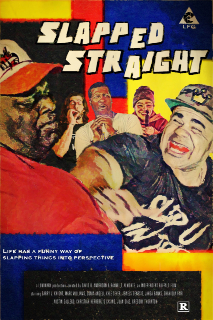







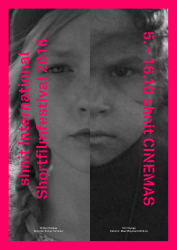







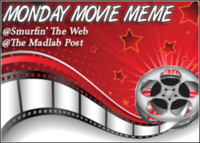


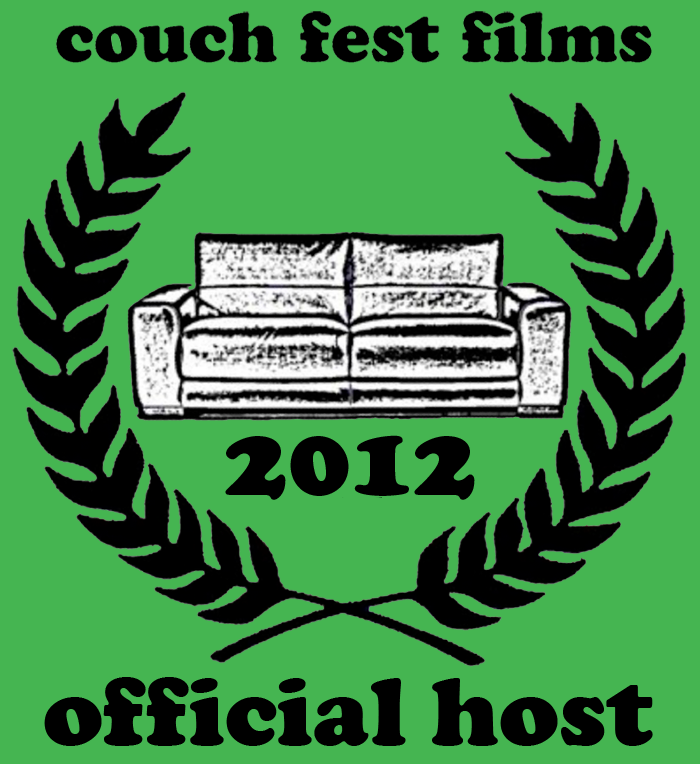

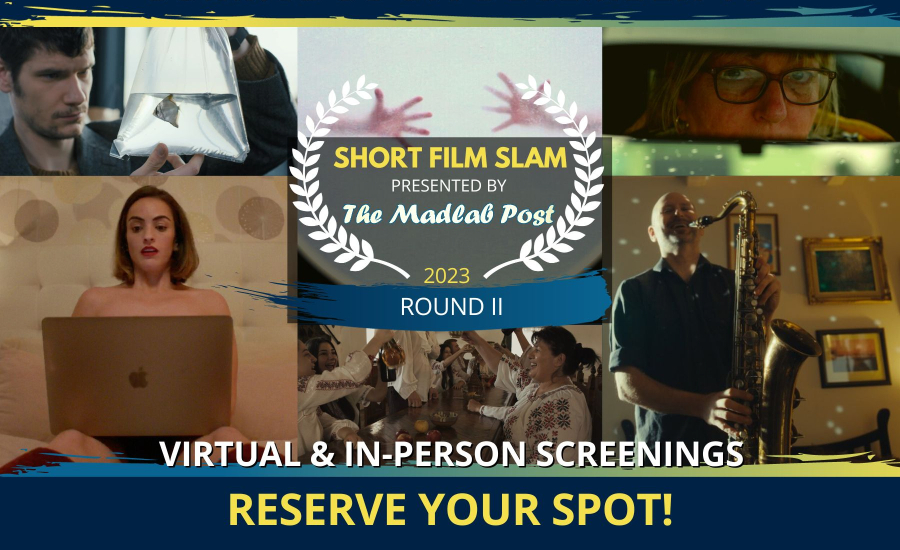

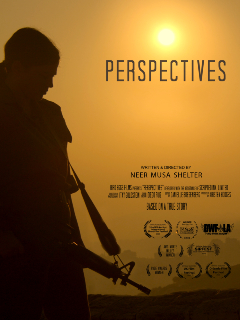
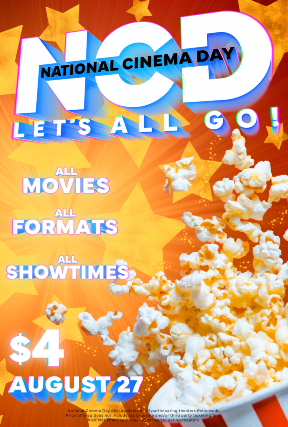

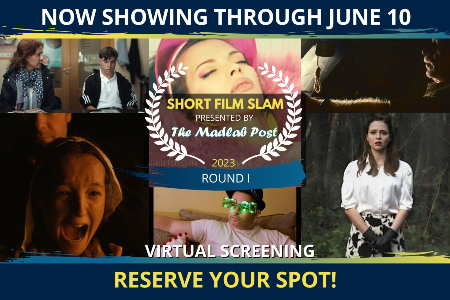
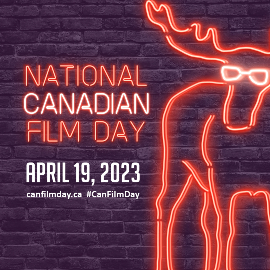
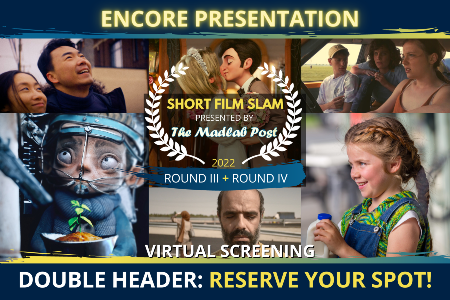
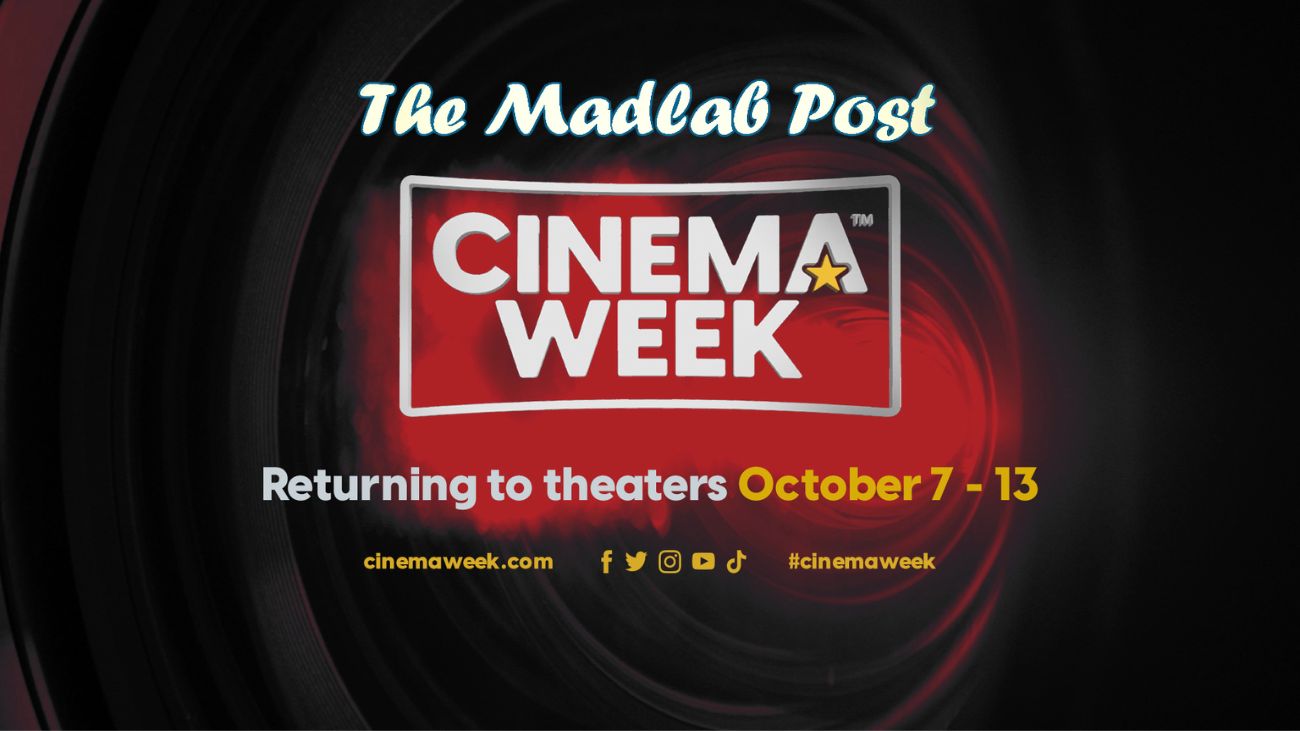


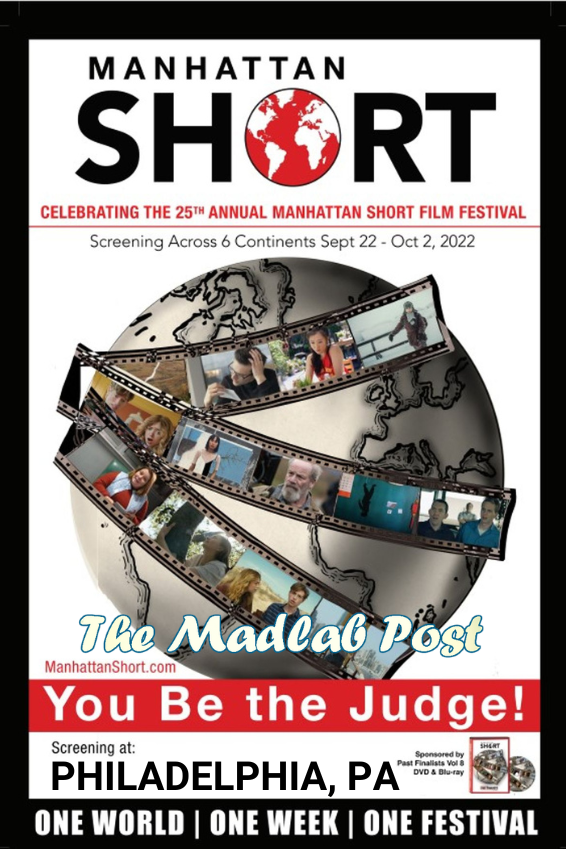
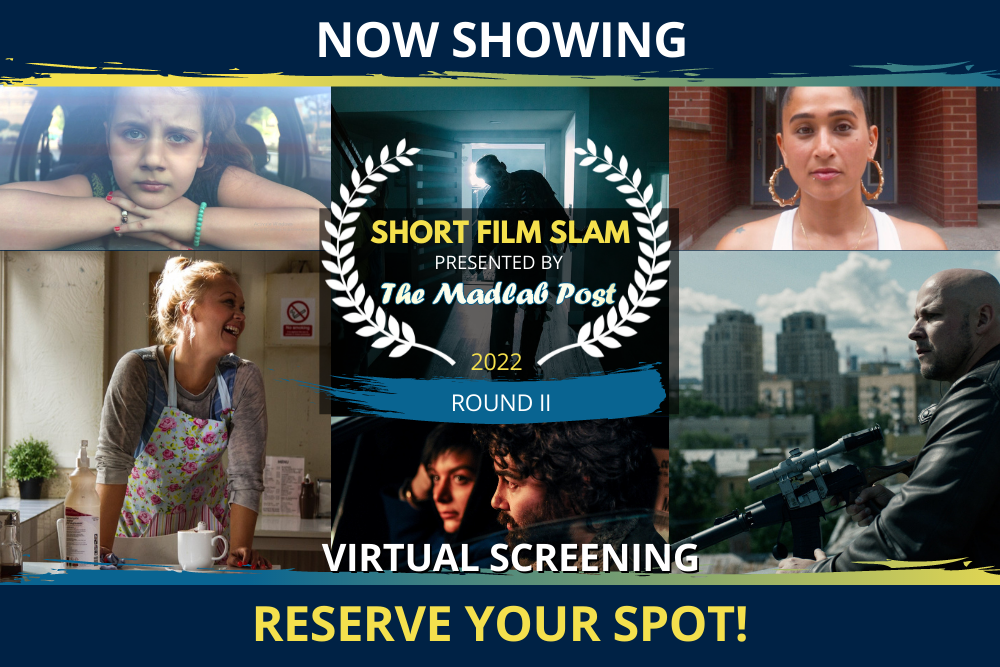

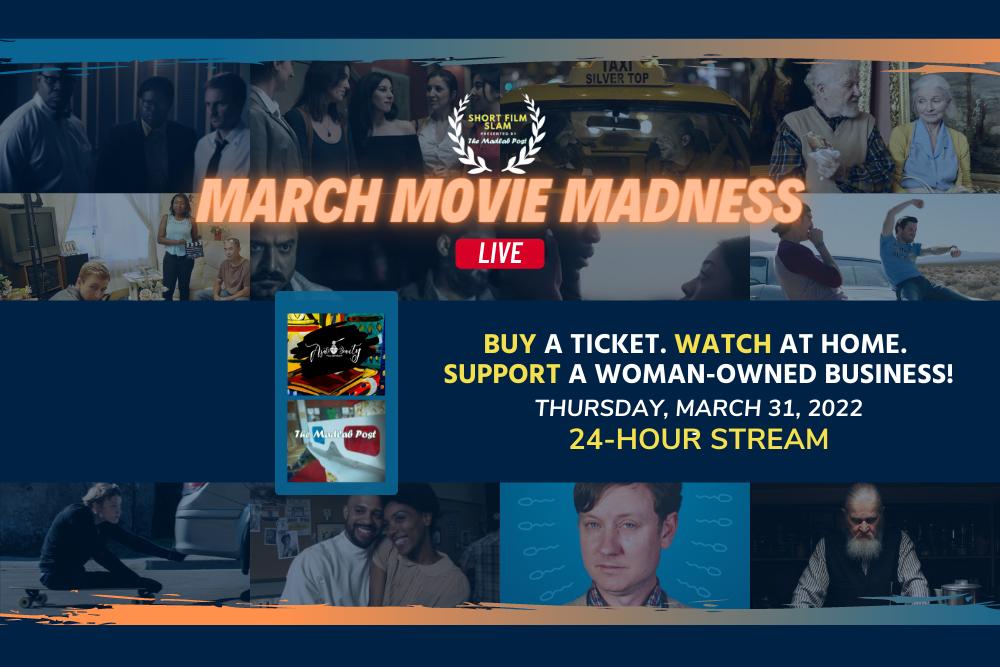
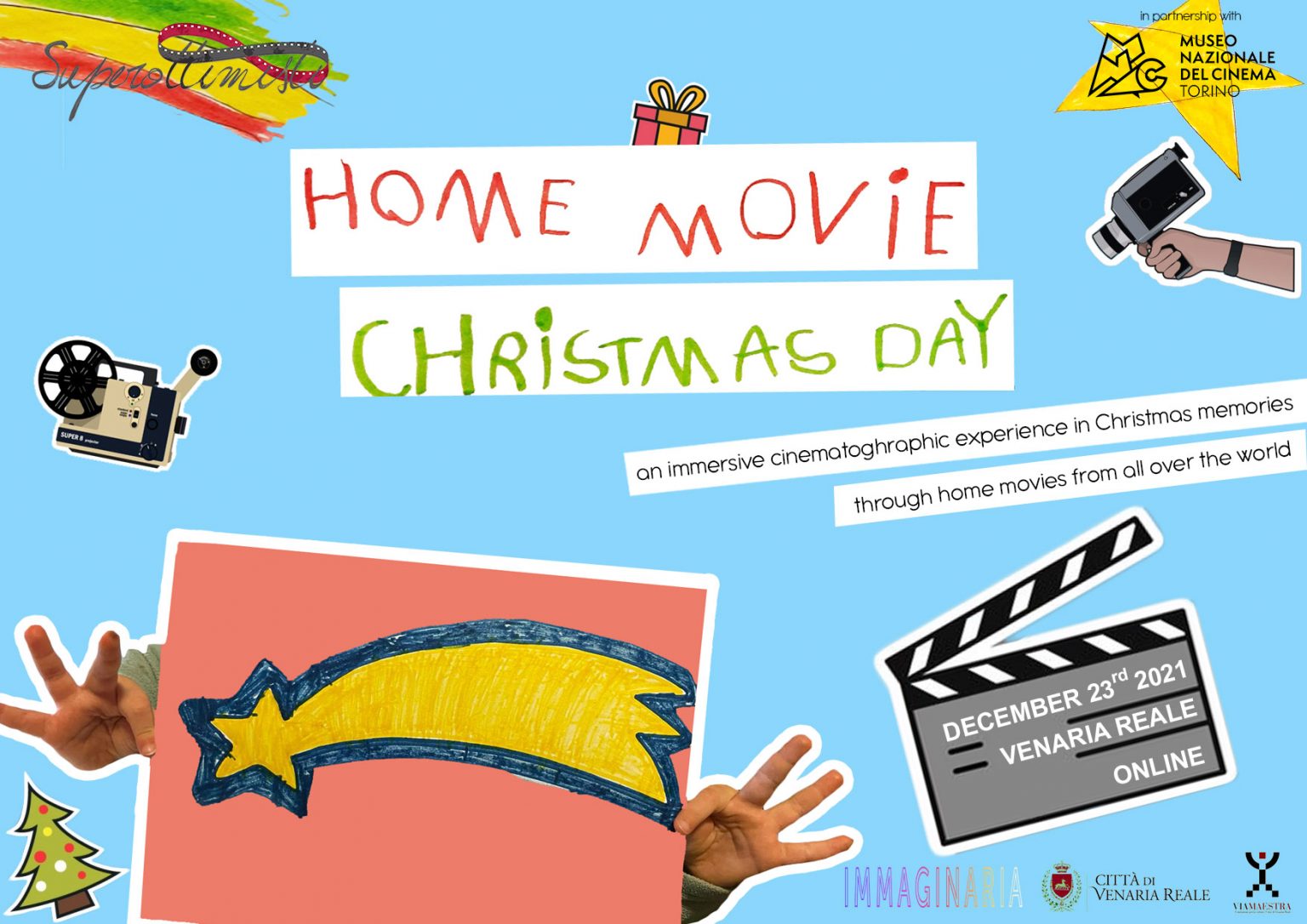
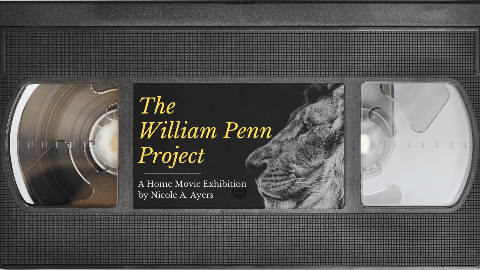
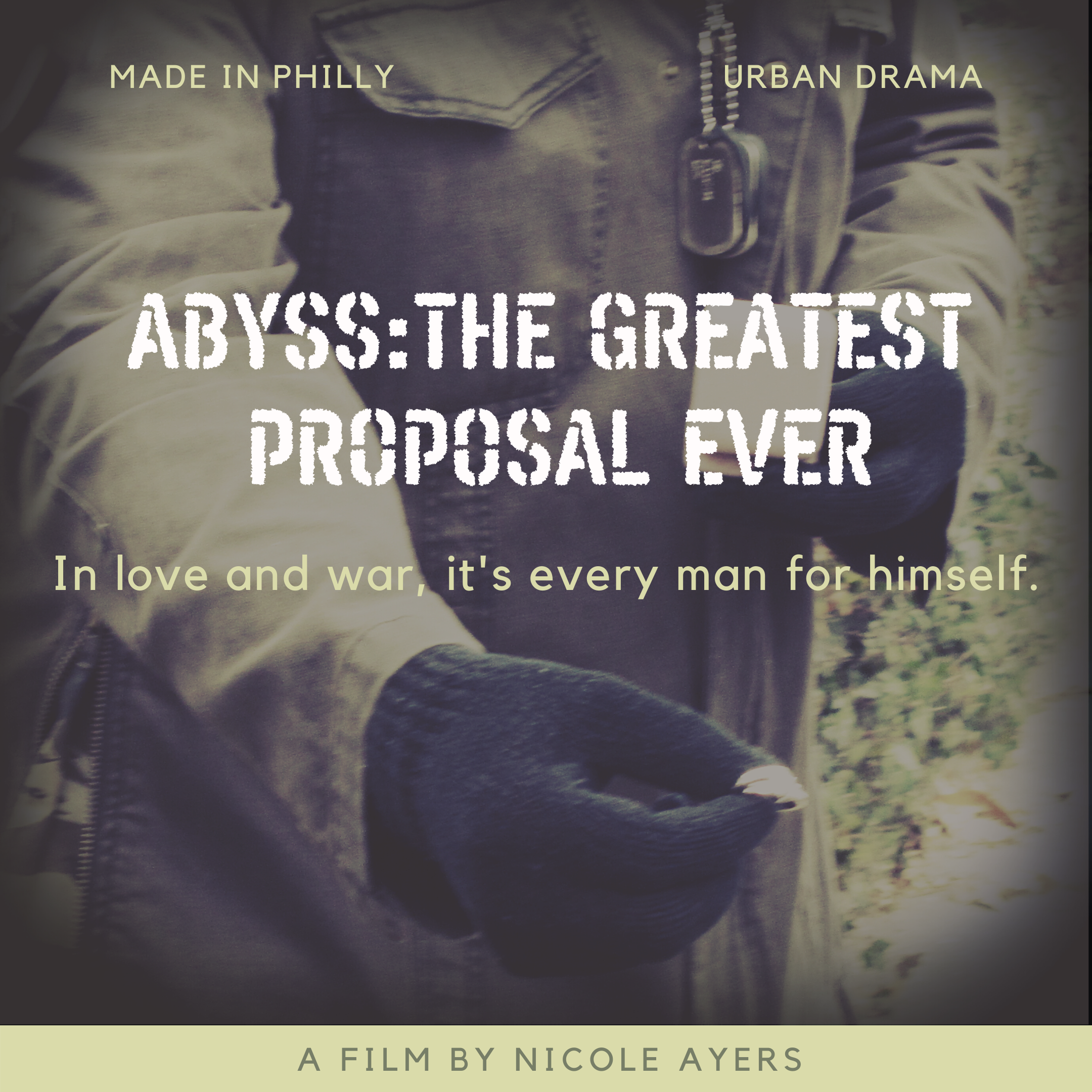
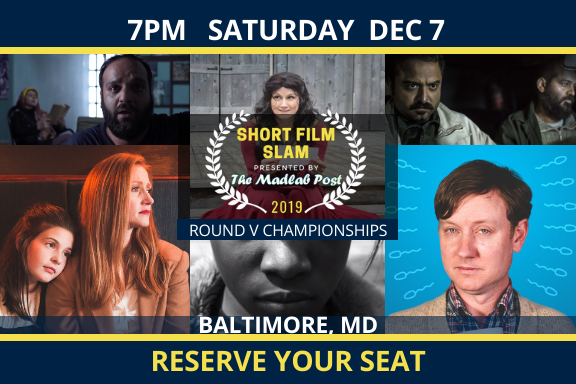
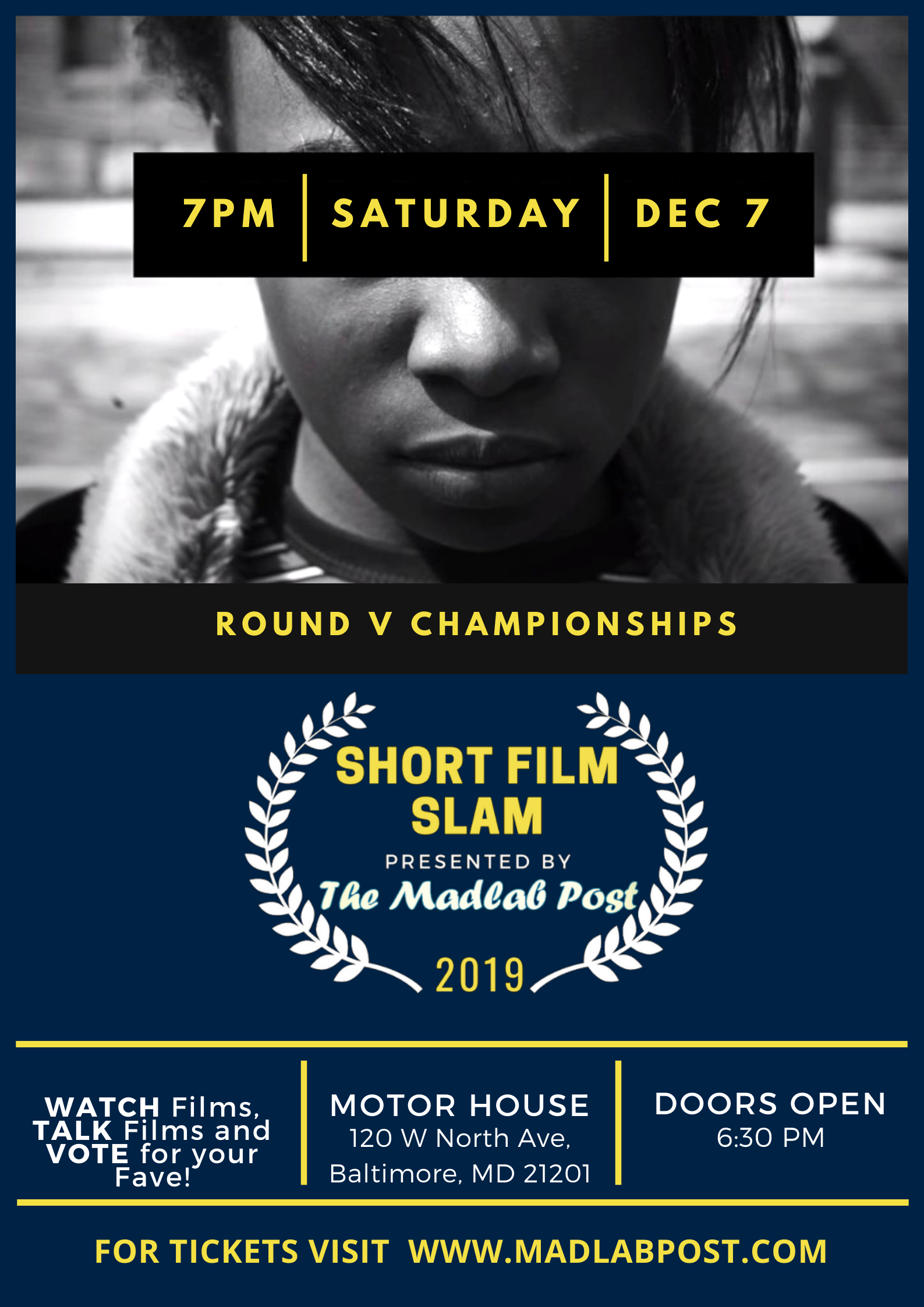
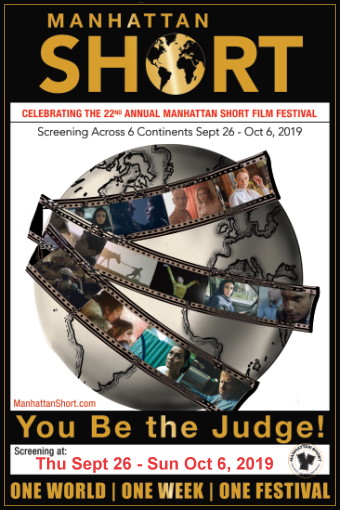
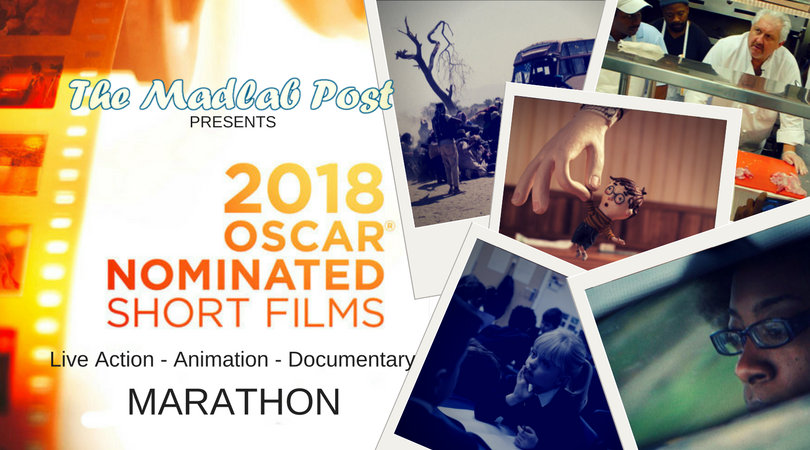



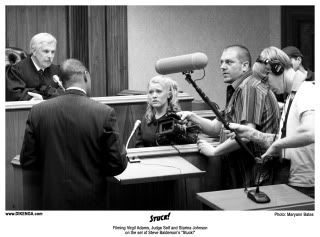
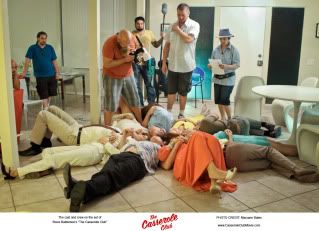
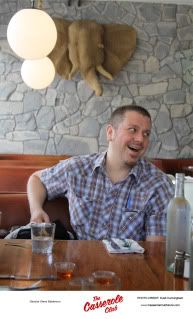
Reader Comments (4)
Interesting post. This is my first time here so trying to soak it all in.
Gregg Metcalf
Colossians 1:28-29
http://gospeldrivendisciples.blogspot.com/" rel="nofollow">Gospel-driven Disciples
Welcome to The Madlab Post Gregg!
Thanks for visiting and feel free to return.
Interesting post. I wondered, since I'm a writer, the new e-book publishing is changing the way authors view their options. Does the new technology in camera's open more doors for would be film makers?
Nancy
http://nrwilliams.blogspot.com" rel="nofollow">N. R. Williams, The Treasures of Carmelidrium.
Nancy,
I don't know if your question is directed to me or Steve but I'll try to answer it.
Improvements in the technology has always opened doors for filmmakers. Quality video cameras have been very expensive though, so a lot of new DV cameras or HD cameras that have been released within the last few years or so have been more affordable in terms of access. The affordability is what has opened more doors for modern day filmmakers, I think.
If you were asking for Steve's response, maybe he'll read this and chime in with an answer to that.
The "digital age" of filmmaking has been the topic of discussion in media outlets and among the community of filmmakers themselves so there is a lot of information available, depicting difference perspectives of how these new cameras affect the products (movies) that are put out.
If I get the time to round up some resources on the subject, I'll let you know.